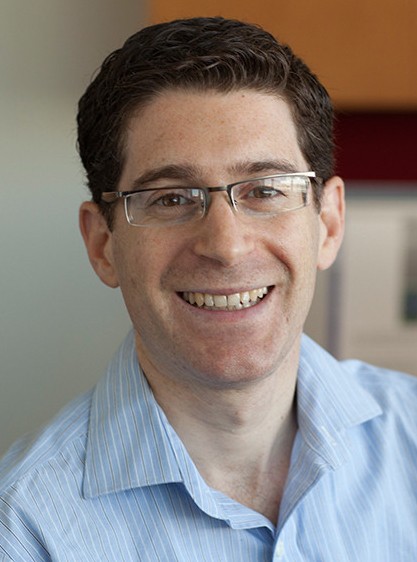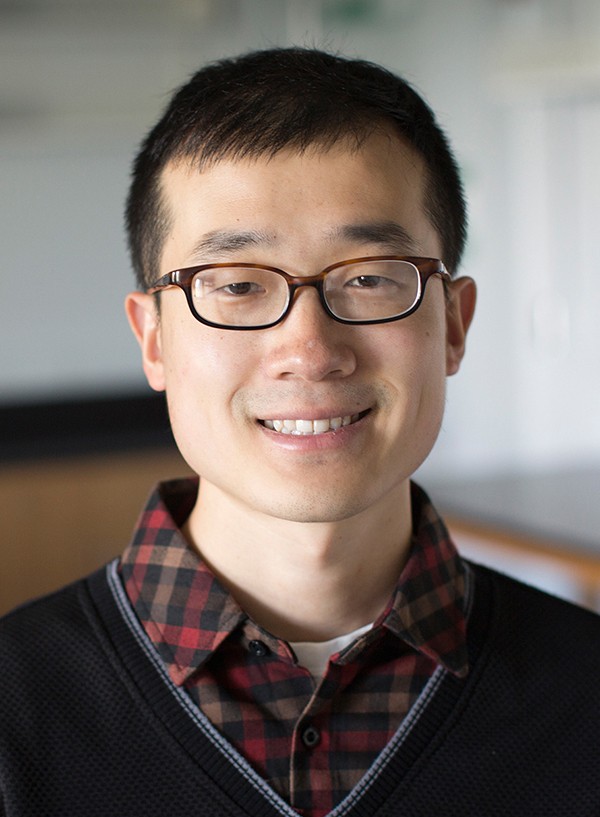Ramshaw, Lin and Baskin win Sloan fellowships
By Melanie Lefkowitz
Assistant professors Jeremy Baskin, Song Lin and Brad Ramshaw have been named recipients of Alfred P. Sloan Foundation fellowships, which support early-career faculty members’ original research and broad-based education related to science, technology and economic performance.
All three faculty members are from the College of Arts and Sciences. Baskin is a Nancy and Peter Meinig Family Investigator of the Life Sciences in the Department of Chemistry and Chemical Biology and the Weill Institute for Cell and Molecular Biology; Lin, a Howard Milstein Faculty Fellow, is in the Department of Chemistry and Chemical Biology; Ramshaw is in the Department of Physics.
They are among 126 researchers in the U.S. and Canada who received $70,000, which may be spent over a two-year term on any expense supportive of their research.
Baskin’s group works on pioneering chemical approaches to probe the cell biology of diverse classes of lipids, with a focus on developing new molecular imaging methods. His group is applying tools and connecting the mechanisms of fundamental biological phenomena in order to understand human health and disease, particularly in cancer and neurological diseases such as multiple sclerosis.
His current research includes using chemical tools to image phosphatidic acid and phospholipase D signaling, whose location within cells can greatly affect their physiological response, and identifying new roles for phosphoinositide-binding proteins in cell biology of myelination and cancer.
Lin’s group is working to develop new catalytic strategies that harness single-electron oxidation and reduction events for the selective functionalization of organic molecules. In particular, his team explores the rational design of catalysts and the creative use of electrochemistry to solve challenging problems in the organic synthesis of valuable compounds including medicine and polymers.
His team has recently developed a new catalytic approach combining electrochemistry and homogeneous catalysis for the highly selective functionalization of readily available feedstock materials, and plans to carry out detailed mechanistic studies on these new reactions. His research group has also developed a new reaction that harnesses reactive radical intermediates to construct prevalent structures in bioactive natural products and molecular catalysts. Future work will expand the scope of this catalysis to apply it to other types of reactions.
Ramshaw, an experimental condensed matter physicist, is working on new ultrasonic techniques to answer questions about symmetry – the notion that an object can look the same when observed from different directions. For example, his group recently developed a machine learning algorithm for use in conjunction with resonant ultrasound spectroscopy to discover a p-wave superconductor, a long-sought state of matter with applications in quantum computing.
According to Ramshaw, the Sloan fellowship will allow him to pursue “what is currently uncharted territory, such as combining ultrasound with focused ion-beam lithography to access meso-scale physics in quantum materials.”
Established in 1934 by Alfred Pritchard Sloan Jr., then-president and CEO of General Motors, the Sloan Foundation makes grants in support of original research and education in science, technology, engineering, mathematics and economics.
Media Contact
Get Cornell news delivered right to your inbox.
Subscribe



